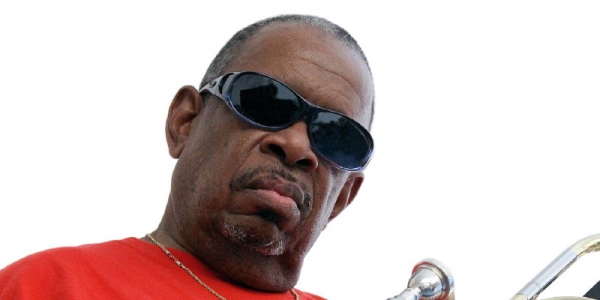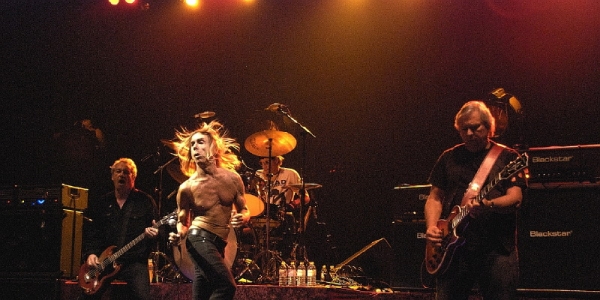“It did not feel like we were makin’ history at the time,” Wesley humbly states, looking back on his work in the ‘60s. “I was just trying to make it through the day trying to please James Brown, makin’ good music. When it was finished I was glad it was finished and that it was good. It was a job. I had no idea that it would last till this day historically. I’m sure it will last forever, now that I look at it and see how it’s accepted and what it has influenced.”
Recent years have seen revival of funk and soul, introducing a new generation to the classic sounds of the era. It’s a trend Wesley has witnessed many times since the ‘60s. “I saw it in the ‘90s. You had Groove Collective, Incognito, Jamiroquai. Lately you have Janelle Monae, Sharon Jones. I’m sure that it goes in waves, every time someone pops up with something new, but based on the same old music,” he explains. “I’m sure it will happen over and over again.”
Few musicians have the reputation for being as ruthless as James Brown, with his methodical pursuit for perfection becoming that of legend. “He had to be definite and exact about what he wanted. That’s the only way he could claim all the music was his,” reasons Wesley. “By controlling it, it all became his own. But it was actually the band and all the musicians that he had in the band at that time that were making the music. If you listen to songs like Soul Power, then listen to Give It Up Or Turnit A Loose, there’s a difference. James Brown put his spark on it, but it was the musicians that made it. James Brown had such a strong personality that he was able to claim songs like Soul Power, but it wasn’t his, it was the musicians’.”
Moving from working with one icon to the next, Wesley found more comfort working with P-Funk progenitor George Clinton. “James Brown would claim all his music, but George Clinton would claim the music, but give the musicians credit. Bootsy [Collins], Bernie Worrell, Gary Shider – they would all contribute. George would figuratively and literally recognise our contributions. I would do horns, Maceo [Parker] would do horn solos. He recognised the musicians, but he would use them as he wanted to. He would take some tracks out, leave others in. It was quality control,” he recalls. “As producer, he had the last say on what did and didn’t make it.”
Since the dissolution of Parliament and Funkadelic in the late ‘70s, Wesley has taken charge and led various bands under his own resolve. “Well since I left James Brown and George Clinton I just came into my own. Doing music my way, albums like House Party. Subsequent albums I’ve done – New Friends, To Someone – I’ve done them my way. I’ve been influenced by James Brown, by George Clinton, by Bootsy, and all the musicians I’ve met along the way. But I do my music my way now. I just hire musicians that I respect and I like. I don’t lay down no stringent rules about anything. I hire musicians with good character, who play good. That’s the way I keep my band intact. James Brown would hire anybody, but rule them with an iron fist. I don’t like to do that.”
While Wesley’s return to Australia will no doubt attract long time fans of funk, the new generation are also in for something special. “The message is freedom, and good times. People feel free when they hear this music. The freedom and the dancing all contribute to longevity. First-timers are gonna expect a good time. We play the show as a house party, and everyone can understand what a house party is. We do some covers – Herbie Hancock, and we do some JBs, Master P, and my original tunes. We gonna have a great time.”
BY LACHLAN KANONIUK







